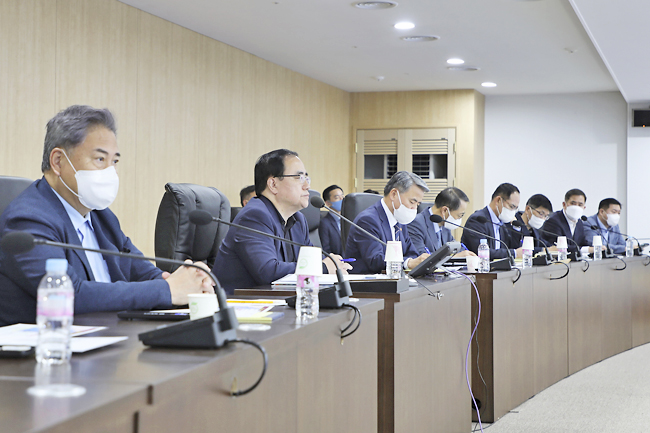SEOUL (AFP) – North Korea fired two ballistic missiles into the sea yesterday, Seoul’s military said, the seventh such launch in two weeks, just hours after a United States (US) aircraft carrier wrapped up joint drills off the Korean peninsula.
Seoul, Tokyo and Washington have ramped up combined naval exercises in recent weeks, infuriating Pyongyang, which sees them as rehearsals for invasion and justifies its blitz of missile launches as necessary “countermeasures”.
With talks long stalled, Pyongyang has doubled down on its banned weapons programmes, firing an intermediate range ballistic missile over Japan last week, with officials and analysts warning it has completed preparations for another nuclear test.
South Korea’s military said yesterday it had “detected two short-range ballistic missiles between 1648-1658 GMT fired from the Munchon area in Kangwon province towards the East Sea”, referring to the body of water also known as the Sea of Japan.
The missiles “flew approximately 350 kilometres at an altitude of 90 kilometres”, Seoul’s Joint Chiefs of Staff said in a statement, calling the launches a “serious provocation”.
Tokyo also confirmed the launches, with the coast guard saying the missiles had landed outside Japan’s exclusive economic zone.

Japanese senior vice defence minister Toshiro Ino said Tokyo was analysing the missiles, adding that “either one of them has the possibility of being a submarine-launched ballistic missile (SLBM)”.
Seoul said last month it had detected signs the North was preparing to fire an SLBM, a weapon Pyongyang last tested in May.
The US military’s Indo-Pacific Command said in a statement that they were “consulting closely with our allies and partners”, adding that the launch highlighted the “destabilising” nature of North Korea’s missile programmes. North Korea’s missile tests usually aim to develop new capabilities, but its recent launches, “from different locations at different times of day, may be intended to demonstrate military readiness”, said Leif-Eric Easley, a professor at Ewha University in Seoul.
“The Kim regime is trying to coerce Seoul, Tokyo and Washington to abandon their trilateral security cooperation.”
At an emergency meeting of Seoul’s National Security Council following the missile test, however, South Korean officials vowed to strengthen that cooperation, according to a statement.
The recent spate of launches is part of a record year of weapons tests by isolated North Korea, which leader Kim Jong-un last month declared an “irreversible” nuclear power, effectively ending the possibility of denuclearisation talks.
Seoul, Tokyo and Washington have ramped up joint military drills in response, with the USS Ronald Reagan aircraft carrier and its strike group redeployed to the area last week.





